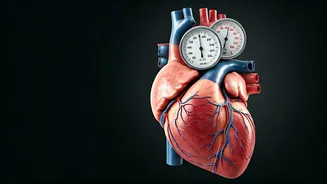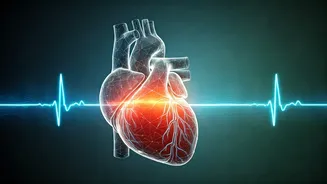Alarm Clock Stress
The abrupt sound of an alarm clock can cause a surge in blood pressure. The sudden disruption of sleep and the body's natural waking process triggers a stress
response. This response involves the release of hormones like cortisol and adrenaline, which constrict blood vessels and increase heart rate, thereby elevating blood pressure. It is important to avoid a loud or jarring alarm. A gentler approach, such as a gradually increasing volume or a sunrise-simulating alarm clock, can reduce the sudden shock to the cardiovascular system. Allow yourself time to wake up. Start by lying in bed and gradually adjusting to being awake. This gradual transition helps mitigate the blood pressure spike caused by an abrupt awakening.
Skipping Breakfast
Missing breakfast is another contributor to high blood pressure. When the body doesn't receive fuel in the morning, it responds as if under stress. This can cause the body to release hormones that increase blood pressure. Furthermore, skipping breakfast can trigger a craving for high-sodium, high-fat foods later in the day, exacerbating the problem. A balanced breakfast provides the energy needed to regulate blood sugar levels and maintain healthy blood pressure. It's best to include foods rich in fiber, whole grains, lean protein, and healthy fats. These foods help prevent blood sugar spikes and crashes, thereby aiding in stable blood pressure throughout the day. Consistency in meal timing also matters. Eating breakfast regularly helps your body anticipate and regulate its functions more efficiently.
Dehydration Risks
Dehydration is often overlooked but can significantly affect blood pressure. The body requires adequate hydration to maintain blood volume, and when dehydrated, blood vessels constrict. This reduces blood flow and increases blood pressure. This effect is often more pronounced in the morning after a night of sleep. During sleep, your body loses fluids. Drinking enough water in the morning is crucial. Aim to drink a glass of water immediately after waking up. Throughout the day, continue to stay hydrated by consuming water, herbal teas, or water-rich fruits and vegetables. Avoid excessive caffeine and alcohol, as they can have a diuretic effect, leading to further dehydration and increasing blood pressure.
Excessive Salt Intake
Consuming high-sodium foods is a well-known risk factor for elevated blood pressure. Many morning meals, like processed cereals, or breakfast meats are often high in salt. Salt causes the body to retain water, increasing blood volume and, consequently, blood pressure. Read food labels carefully and be mindful of sodium content. It is important to keep a check on processed foods, as they tend to be high in salt. Choose fresh foods and cook at home to control your sodium intake. Consider using herbs, spices, and other flavor enhancers in place of salt. Over time, decreasing your sodium intake can help regulate blood pressure and reduce your risk of hypertension.
Caffeine Overload
The consumption of coffee or caffeinated beverages in the morning can also affect blood pressure. Caffeine acts as a stimulant, leading to a temporary increase in both heart rate and blood pressure. The magnitude of this effect can vary among individuals. Some are more sensitive than others. People who regularly consume caffeine may develop a tolerance, so its impact could be lower. Even if the effects are temporary, it is important to consider the timing and amount of caffeine intake. To manage the impact of caffeine, start with a smaller portion and monitor your body's response. Avoid or limit the use of coffee if you are already experiencing high blood pressure. If you are sensitive, choose decaffeinated alternatives. Ensure a balanced lifestyle which reduces stress.













